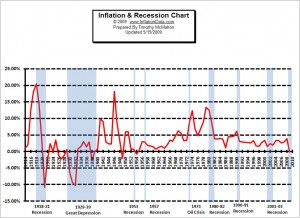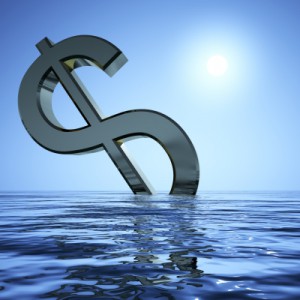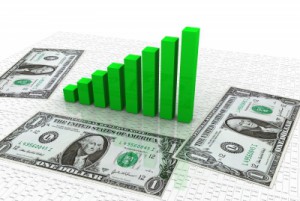Inflation Adjusted Prices What is the inflation adjusted price of common commodities? Historical Oil Prices Chart - This Chart compares Monthly Average Oil Prices with their Inflation Adjusted Oil Price. Historical Crude Oil Prices (Table) - The first table shows Annual Average Crude Oil Prices from 1946 to the present. Prices are adjusted for Inflation using the Consumer Price Index (CPI-U) as presented by the Bureau of Labor Statistics Inflation Adjusted Electricity Prices - Residential electricity prices in the U.S. have risen from an average of 7.83 cents per kilowatthour in 1990 to an average of 11.44 cents per kwh in 2010. This is a 46% increase in 20 years and sounds like a … [Read more...]
Does the Consumer Price Index (CPI) Include Taxes?
Question: I have heard over the years that the CPI does not include taxes as one of its components. In other words, an increase or decrease in a tax rate is not considered a change in consumer prices/costs. Is this true? If so, how is this omission justified? Thank you, James Schmidt … [Read more...]
Stagflation – What is it?
What is Stagflation? The simple definition of Stagflation is a "stagnant economy coupled with price inflation". Thus the term Stagflation... it has nothing to do with Deer. In other words, in stagflation prices are going up while the economy is going down. The word was coined during the inflationary period of the 1970's. Under normal conditions one would expect inflation to heat up the economy i.e. increase buying demand. That is one reason the FED generally increases interest rates during periods of higher inflation. This helps to cool the economy and prevent inflation from spiraling out of control. Of course ,if you have read other articles on this site, you will know that … [Read more...]
Disinflation – What is it?
Definition of Disinflation By Tim McMahon To fully understand disinflation we need to first understand inflation. The reasons this is trickier than it first appears is because the word inflation is actually used in two different contexts. The most common usage of the word inflation means rising prices. Commonly "consumer prices" so when you go to the gas station or the grocery store and the things you buy cost more than last month (or when it is really bad even more than last week) this is more precisely defined as "price inflation". The second meaning of the word inflation is actually the original meaning. And that is an increase in the money supply that causes "price … [Read more...]
Inflation and Recession Chart
How does Inflation and recession correlate? Current Commentary Does high inflation correspond with a recession? Or does high inflation precede a recession? This chart shows the historical average Annual Inflation rate (red line) compared to the time periods where the country was in recession (blue shaded areas). Since 1914 there have been eight recessions. Three lasted for a single year, (in 1953, 1957 and again in 1990). The longest recession was actually the "Great Depression" which lasted ten years from 1929 to 1939. … [Read more...]
What Causes Inflation?
Inflation Cause and Effect I often receive letters from students, that demonstrate a fuzzy understanding of inflation and its causes. Unfortunately, I often get the same type letters from teachers and business people too! It seems that people often confuse the cause of inflation with the effect of inflation and unfortunately the dictionary isn't much help. As you can see in my article What is the Real Definition of Inflation? the modern definition of inflation is "A persistent increase in the level of consumer prices or a persistent decline in the purchasing power of money..." In other words according to this definition inflation is things getting more expensive. But that is … [Read more...]
What is Deflation?
Define Deflation: In common usage deflation is generally considered to be "falling prices". But there is much more to it than that. Often people confuse deflation with disinflation or with Depression (as in "the Great Depression"). These three terms are related but not synonymous. According to Investorwords.com the definition of Deflation is "a decline in general price levels, often caused by a reduction in the supply of money or credit. Deflation can also be brought about by direct contractions in spending, either in the form of a reduction in government spending, personal spending or investment spending. Deflation has often had the side effect of increasing unemployment in an economy, … [Read more...]





